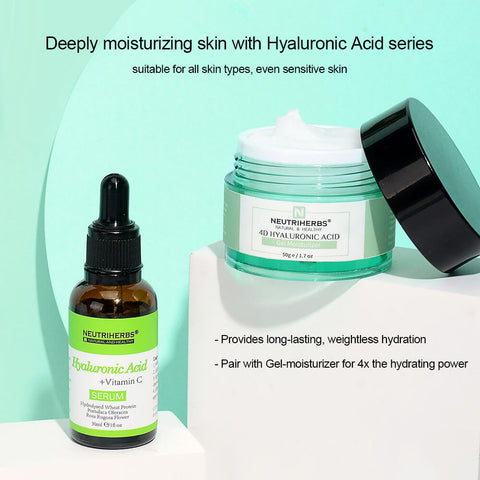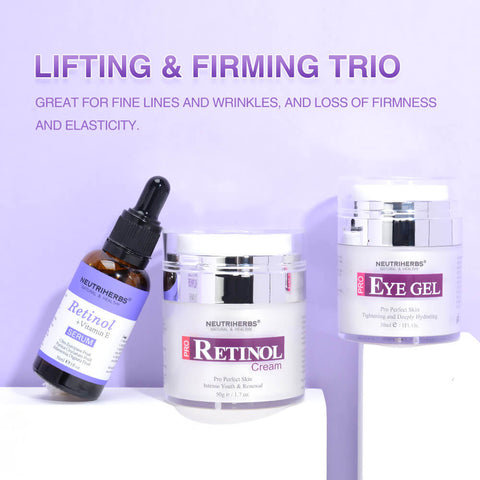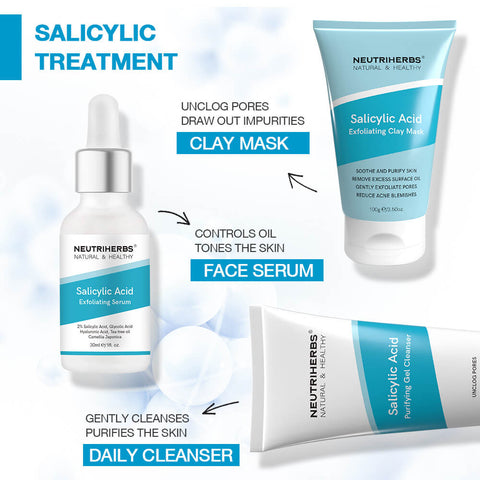Before understanding what are types of cosmetic acids, it is important to answer, what are cosmetic acids used for? Acids are chemical or natural substances that are used in cosmetics as cell renovators. They serve to remove wrinkles, blemishes, and acne marks, close pores, and activate collagen.
Hyaluronic acid
It is one of the best-known and most common metric products. It is not aggressive to the skin, as it is present in our body, it is tolerated by all skin types and can be applied both in the morning and at night. It has great moisturising power and also helps improve skin firmness.

Glycolic acid
It is the best known of alpha-hydroxy acids. It is an acid with an exfoliating action, capable of penetrating deep layers of the skin and indicated to improve acne marks, close pores, lighten spots and provide luminosity. It may cause itching after application.
Retinoic acid
For many dermatologists, it is the most powerful anti-ageing active ingredient. Its main action is cell renewal, achieving a more uniform and smooth skin. It is indicated to treat wrinkles and blemishes. But, kingdom acid (the acid form of vitamin A) should not be used by pregnant women, and it is not well tolerated by all skin types. It can cause flaking, itching, burning and redness.

L-ascorbic acid
It is vitamin C and stands out for its powerful antioxidant action, blocking the formation of free radicals. It can be used as a complement to photoprotection, although in no case does it replace it. It provides a luminosity and in combination with other antioxidants such as ferulic acid, it manages to improve the appearance of fine wrinkles.
Lactic acid
Its main action is exfoliating sensitive skin. It is a good option for people with reactive, sensitive skin or who have rosacea problems.
Salicylic acid
It is a beta-hydroxy acid, with exfoliating and keratolytic properties, highly recommended to treat acne and eliminate comedones, due to its dragging power. It also has antiseptic and anti-inflammatory action.

Azelaic acid
It stands out for its sebum-regulating action, which is why it is usually recommended for acne-prone skin. In addition, it helps to improve skin with rosacea, it serves to eliminate spots. It can be used morning and night.
Lactobionic acid
It is a polyhydroxy acid, the difference with AHAs or alpha hydroxy acids is that they have the same effectiveness, but they do not cause itching or stinging. It has great moisturising power, as it strengthens the epidermal barrier and prevents water loss, and antioxidants, preventing skin ageing. It stimulates the formation of collagen.



